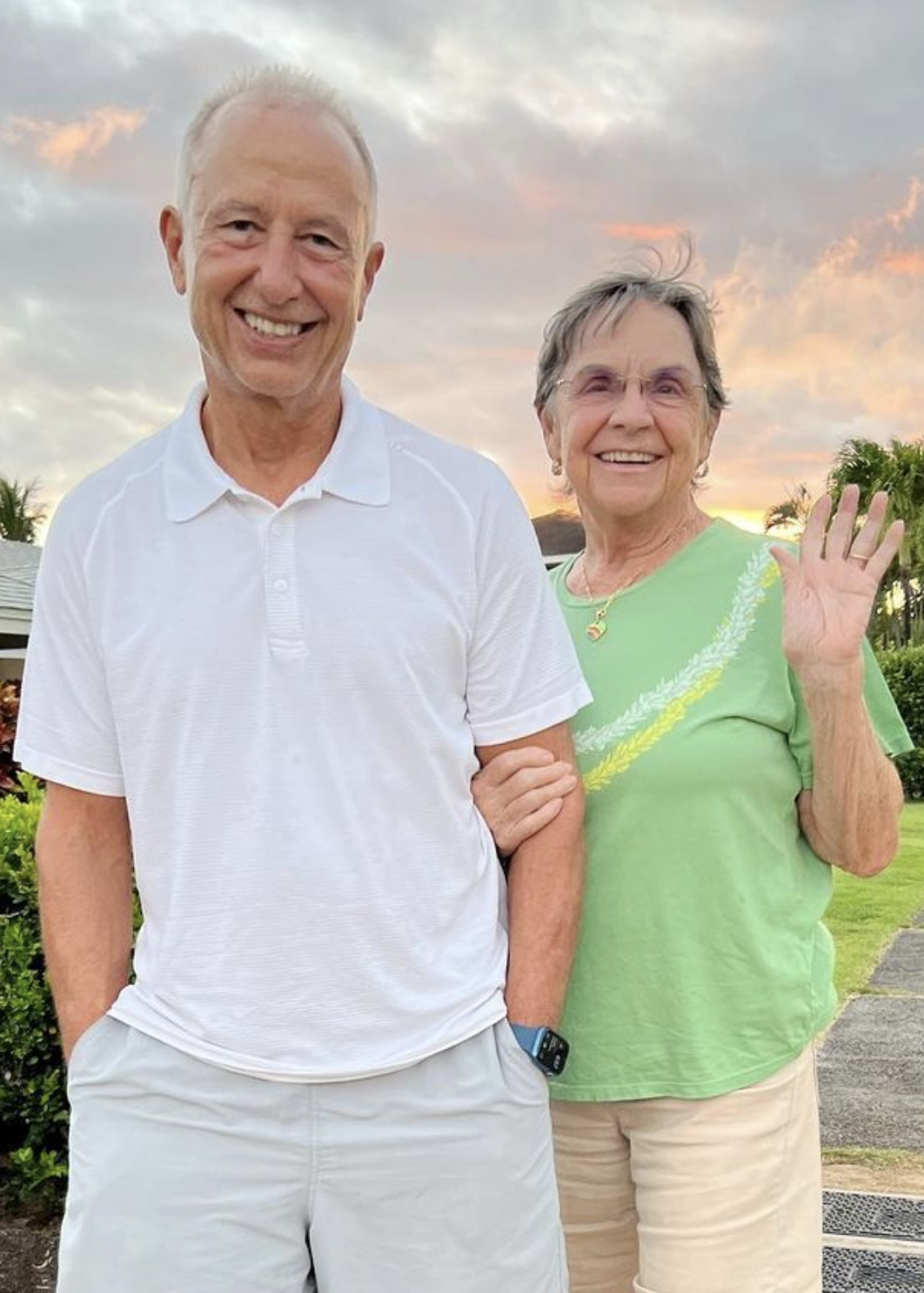WHAT IS ESTATE planning?
Before we talk about who needs it, let’s be clear about what estate planning is. Estate planning is the proactive process of setting up a plan in case of your incapacity or death. As the old expression goes, "You can't take it with you" and you never know what's going to happen in life. The estate planning documents of a will, advance health-care directive, power of attorney, and sometimes a trust help someone step into your shoes to make decisions on your behalf, during your lifetime. Then after your lifetime, they control who inherits your property and how and when that inheritance is received. Estate planning makes your wishes clear to loved ones and helps to minimize administration costs and unnecessary taxes.
What happens if I don’t have a will OR TRUST?
If you die without a plan in place your property passes instead in accordance with the state law in which you lived. Think of these laws as a standardized back-up will written by the state legislature on behalf of anyone who dies intestate, that is, without a will.
Despite the legislature’s good intentions, property controlled by intestate rules sometimes passes to people the decedent wouldn’t have selected. For example, any such property passing to the decedent’s children will be shared by them equally, even if the decedent had made clear (but not in a valid will) that she did not want a particular child to get anything … and even if that child had once talked the parent into giving that child “his inheritance” before the parent died. That child would probably end up with a double share.
Speed bumps
If you haven’t done your estate planning, we get it. Time and energy are limited resources, but a little work now can save your loved ones a whole lot of headache later.
Here are the three most common reasons why people put off estate planning and how to overcome them:
1) I don’t have an estate.
The word "estate" is sometimes associated with multimillion dollar individuals. But that's not the case. An estate is whatever assets you leave behind, whether that's just a bank account or a home (with a large mortgage like most of us).
2) It’s too complicated.
The second most common reason to put off estate planning is that people think "it's too complicated". There is a misconception that you need to locate the exact information on every single account you've ever opened, down to the dollar. All you need, to start, is a general idea of what you own, who you want to designated to be in charge, and who gets what. The majority of clients at the end of our estate planning process say it was a lot simpler than they anticipated.
3) I don’t want to think about aging or death.
The third and very human reason that people don't do estate planning is that they don't want to think about getting older or dying. We understand. Nobody enjoys thinking about their own demise or talking about it, but that's what estate planning is. The goal here is to make decisions now, so that you can live your life with peace of mind that your wishes will be carried out in the event of your incapacity or death.
The FIRST MEETING
If you're thinking about estate planning, our advice is to just set up an initial consultation. Initial consultations are usually complimentary. At this meeting, an attorney gathers basic information about your family, your assets, and your goals in the event of your incapacity or death. Then we give you our advice on which documents best accomplish those goals. At the end of about an hour, we quote you based on what that plan looks like, because every plan is different. For the specifics on how to prepare for estate planning, see this video.
Who needs estate planning?
An initial estate planning meeting is recommended for most people, because it's a face-to-face opportunity to understand what your options are. Most people will benefit from estate planning, or if they don't need it, we'll tell you that for sure. There are five general categories or times in your life, where estate planning should be done.
These five categories of people usually benefit from estate planning:
1) First, young families who have minor children would benefit from having a plan in place to designate who would take care of their kids in the event that both parents pass away. For more about the details of appointing a guardian or conservator of a minor child see this video on “Who should be the guardian of my child?”
2) Second, are business owners who want to make sure that their business continues in the event of that they get sick or pass away. Setting up a plan for someone to easily step into your shoes makes sure employees are taken care of, the bills are paid, and the business doesn’t stop, when the owner is no longer able to run things.
3) Third, mixed or blended families are when spouses or partners have existing children from earlier in life. Estate plans for parents in blended families can minimize disharmony among the family members they leave behind.
4) For Kūpuna, or elders, estate planning may be about avoiding probate and incapacity planning. For older people, designating someone to step-in and help with finances or manage affairs allows life to continue smoothly. For more about how to talk to someone about incapacity and healthcare, see John’s interview with an Adult Care Expert.
5) Finally, new Hawai’i residents who may have created an estate plan in a different state, should make sure that, now that they live in Hawai'i, their plan is consistent with Hawai'i law. For more about reviewing your will or trust in your new state of residence, see the video: Is my out-of-state trust still valid?
Already have a plan?
So you already did your estate plan? Great, but it might need an update. The industry standard recommends you review your estate plan every four to five years. You might not need to update it, but should at least review your plan with an attorney. This rule of thumb is based on relevant law changing roughly every four to five years. Also, your advance healthcare directive and power of attorney may not be accepted by health and financial institutions after they are five years old. For most of us, our lives change over the course of a few years and our goals might not be the same as when the plan was originally made.
HERE’S A LIST OF REASONS YOUR WILL OR TRUST SHOULD BE UPDATED:
1. Estate Plan not reviewed in the past 4 years
2. Estate Plan not prepared in the State you live in
3. Change in marital status
4. Become a new, first-time parent
5. Executor/Trustee dies or no longer able to serve
6. Substantial change in net worth
7. Reason to expect substantial future inheritance
8. Significant change in health or ability/desire to manage finances
It’s easy to do your estate plan, then leave it in drawer for years. Your estate plan should change as your life changes, so that it reflects your current wishes and goals.
Still not sure? Watch this video explaining when to update an estate plan.
We hope you found this information on nominating legal guardian in Hawaii helpful. If you have any questions please comment below or contact us.
JOHN ROTH
John is the founder of Hawaii Trust & Estate Counsel, a statewide Hawaii estate planning law firm with offices in Waimea, Hilo, Kona, Maui, and Honolulu. He has taught Estate Planning at the Richardson School of Law, and business law courses at the University of Hawaii—Hilo. He started “Just Ask John” as a monthly newspaper column answering commonly asked estate planning questions, in the North Hawaii News, then in The West Hawaii Today. Now it’s an online blog and video series. ....MORE
MAKE AN INFORMED DECISION
Everyone has a different story and should have a unique estate plan. In most cases, the first meeting with one of our attorneys is complementary and serves the purpose of understanding your goals and educating you on your options. Depending on the option that is right for you, we will give you a price quote at the first meeting, before moving forward with your plan. Feel free to explore the basic information on our website.
This blog does not contain legal advice. You should not rely on this to determine what is in your own best interest. For legal advice, specific to your situation, you must meet with an attorney. All posts are based on hypothetical scenarios, not the actual circumstances of real clients.















What assets should you put in your trust? Avoiding probate, planning in case of incapacity, and making things as easier for loved ones after your death are all things to consider.